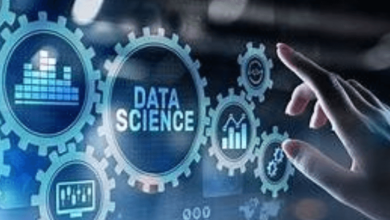The Role of Technology in Fighting Global Pandemics

Technology has become integral to pandemic prevention, offering tools for early detection, precise contact tracing, and remote healthcare delivery. Data analytics and artificial intelligence enable proactive interventions, reducing transmission and mortality rates. While these innovations improve response efficiency, challenges related to privacy and equitable access persist. As technological capabilities evolve, understanding their potential and limitations remains critical to shaping resilient global health strategies. The ongoing integration of these tools warrants a closer examination of their long-term impact.
Enhancing Disease Surveillance and Data Analysis
Advancements in technology have significantly improved the capacity for disease surveillance and data analysis, enabling more timely and accurate detection of emerging health threats.
Emphasizing data privacy safeguards fosters public trust and awareness, empowering individuals to participate proactively.
This data-driven approach enhances early intervention, supporting a preventive strategy that prioritizes transparency and collective resilience in safeguarding personal and community health.
See also: The Role of Tech in Enhancing Environmental Sustainability
Advancements in Contact Tracing and Mobile Technology
Building on improved data analysis capabilities, mobile technology has revolutionized contact tracing efforts by enabling real-time identification and notification of potential exposures.
While enhancing disease prevention, it raises privacy concerns and highlights technological disparities, which can limit equitable access and undermine public trust.
Addressing these issues is essential to harnessing the full potential of contact tracing innovations.
Telemedicine and Digital Health Services
How has the integration of telemedicine and digital health services transformed healthcare delivery during pandemics? Remote diagnostics and health monitoring enable proactive, accessible care, reducing hospital visits and limiting contagion.
Data-driven insights support early intervention, empowering individuals to manage health proactively, fostering autonomy and freedom while enhancing pandemic response efficiency through real-time digital health solutions.
The Future of Artificial Intelligence in Pandemic Response
Artificial intelligence (AI) is poised to significantly enhance pandemic response strategies by enabling more accurate modeling, early detection, and targeted interventions.
However, ethical considerations and AI bias must be addressed to ensure equitable decision-making. Developing transparent algorithms and rigorous oversight can safeguard individual freedoms while harnessing AI’s potential to prevent widespread health crises.
Conclusion
Technology’s integration into pandemic response serves as a vital shield, enabling early detection, efficient contact tracing, and remote care. Data-driven innovations streamline interventions, reducing transmission rates and saving lives. As the adage “an ounce of prevention is worth a pound of cure” suggests, investing in these tools fosters a resilient health system capable of preempting crises. Continued advancements and equitable access are essential to transform technological potential into tangible, global health safeguards.




